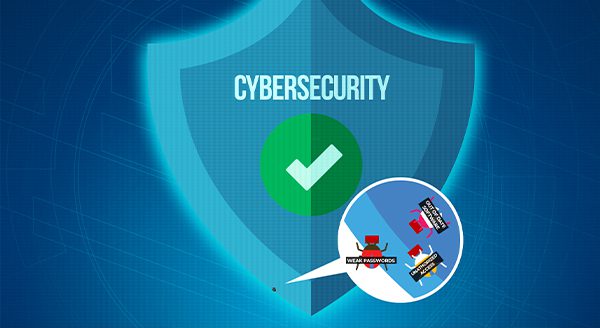
Author Richard Carlson tells the world, “Don’t Sweat the Small Stuff” in his popular book. Yet he’s not in the cybersecurity realm. When it comes to protecting your business, you do want to watch the little things. Avoiding small matters could bring big risks.
You’re already keeping an eye on the big things such as ransomware or data breaches, and you’ll also be ensuring have a data backup and disaster recovery plan in place. But don’t overlook the small issues that come up – they can be just as vital to your cybersecurity.
For one thing, don’t undervalue physical security for your business technology. In America, there have been reports recently of attacks on power stations, but these aren’t sophisticated cyber hacks. Attackers with guns are breaching the physical premises and shooting transformers. It goes to show that you focus on preventing cyber threats at the expense of perimeter protection.
This also means reminding employees not to let unknown personnel into the building and telling them to take down those post-it notes on their PCs with their passwords on them.
Allowing your people to work on software that’s past its support date could also be a bigger deal than you think. The “if it ain’t broke, why fix it?” mentality could leave you open to attack. Hackers seek out vulnerabilities tied to outdated systems. They can leverage small openings to wreak havoc on your business.
Small steps can make a big difference
Similarly, don’t fall for the idea that cybersecurity effort needs to be complicated to do the job. There are small steps your business can take to protect itself.
Cyber hygiene is a good starting point. Ensure your people aren’t reusing weak passwords across accounts. Make keeping track of complex passwords easier by using online wallets such as LastPass.
Keep computers updated and software patched. Manufacturers keep up with threats and upgrade their code to address known vulnerabilities. All you need to do is allow the update when it’s offered. It can be an inconvenience, but agreeing to that update can save you a big problem down the road.
Educate employees about using public Wi-Fi networks. They may think they are being productive by logging in while in line at the coffee shop, but that public access point could be putting your systems at risk. One big problem is that an attacker could be set up on that hotspot to intercept sensitive data.
Encrypt data. This helps you protect data wherever it may be, not just on-site. A hacker intercepting that data would still need decryption capabilities to get access.
Multi-factor authentication also helps to protect your business. After all, a criminal could get access to an employee’s username and password from a phishing attack. If you don’t add a second layer (at least) of authentication, they can easily log into your network and do damage.
Need help with cybersecurity issues? We can help you with the big and the small. Contact us today at (515)422-1995.


